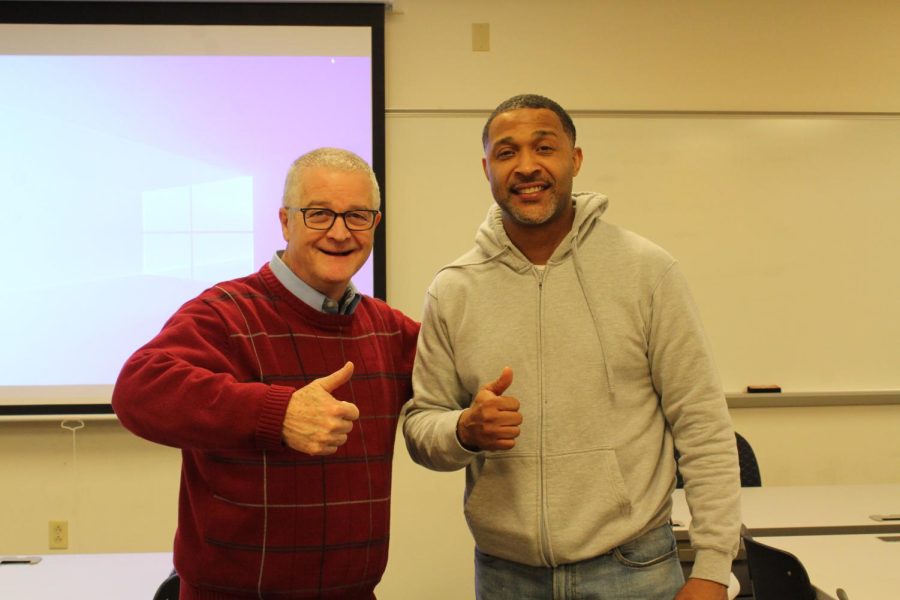Entrepreneurial institute marks 20 years at AACC
Student entrepreneurs pitch their business ideas every year in a Shark Tank-style competition to win cash prizes. Shown, mentor Steve Berry, left, poses with contestant Ron Parker at a kickoff event.
February 23, 2023
AACC’s Entrepreneurial Studies Institute will celebrate 20 years on campus this spring as it hosts its 19th annual Business Pitch Competition.
Former ESI Academic Chair Carlene Cassidy said she started the institute and the Shark Tank-style contest two decades ago to teach student entrepreneurs how to “bootstrap” their businesses with “practical” lessons for refining their ideas. Students compete for thousands of dollars in cash prizes to help them get on their feet.
“There are some core, fundamental things that every business owner should have under their belt,” Cassidy, CEO of the Philip E. and Carole R. Ratcliffe Foundation, said. “It’s really [about] seeing students grow through the process. The competition is the culmination of that.”
The foundation has donated almost $25 million nationwide to entrepreneurship-based scholarships and competitions like AACC’s Business Pitch.
In 19 years of those competitions at AACC, the foundation has funded almost $400,000 worth of prizes to more than 100 student winners who have pitched their business ideas and plans to panels of judges.
ESI Academic Chair Stephanie Goldenberg said her favorite part of the competition is watching the contestants have that “lightbulb moment” after meeting with their coaches and mentors.
“It’s transformative,” Goldenberg, who coached participants in the past, said. “I see their excitement. I see their passion. I can hear it.”
Goldenberg added the Big Pitch allows student entrepreneurs to get “real world experience” as they practice pitching their ideas to investors, noting a sense of “community” as participants get feedback from coaches and peers.












